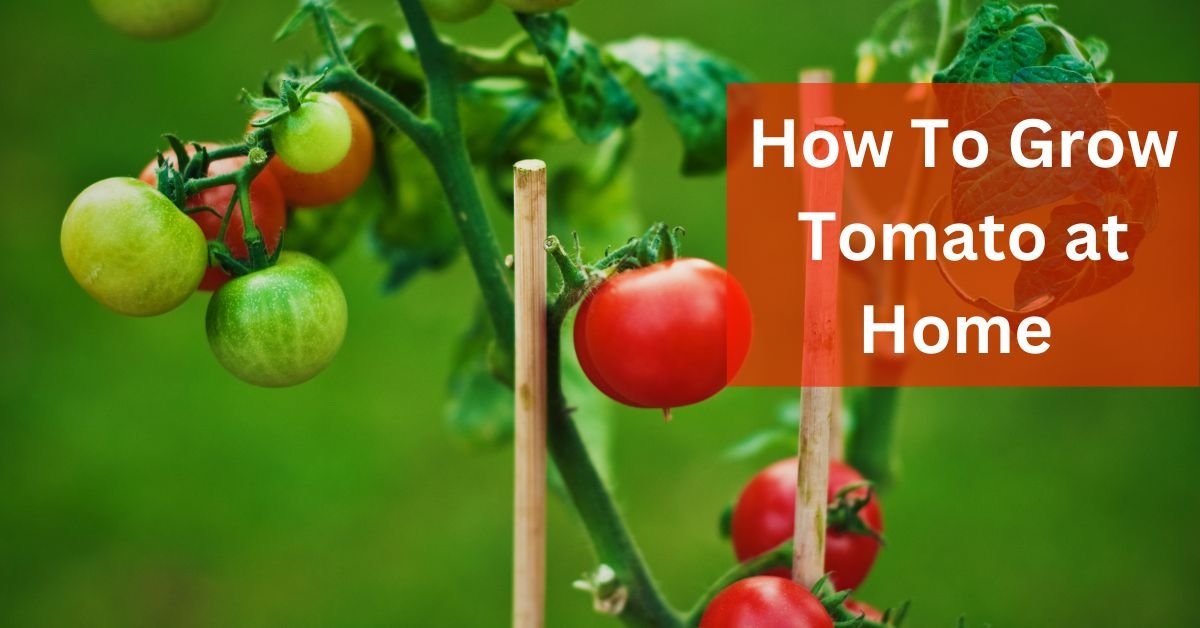Tomatoes at Home From Tomato In India : Are you ready to turn your kitchen garden into a tomato paradise? Discover the secrets of growing tomatoes at home in India. From choosing the right variety to a tomato-themed feast, let’s embark on a flavourful gardening adventure!
1. Choosing the Right Tomato Variety
Selecting the right tomato variety is crucial. In the vast tapestry of Indian climates, certain varieties thrive better than others. Opt for the desi favourites like “Roma” or “Bangalore Torpedo” for a robust and flavourful harvest. These varieties are well-suited to the Indian soil and climate, making them ideal for your home garden.
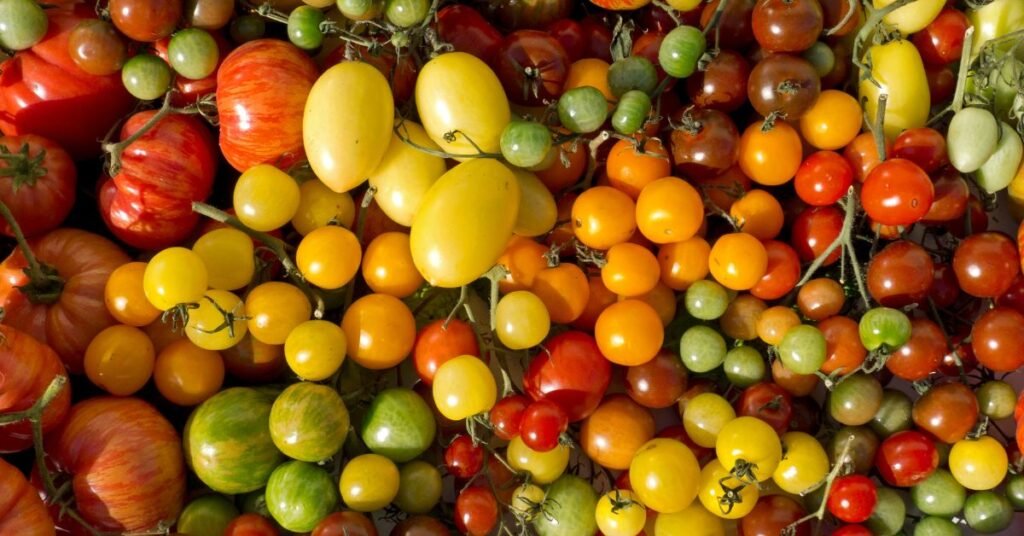
Tomato Variety
| Tomato Variety | Quality | Other Features | Duration (Seeds to Harvest) |
|---|---|---|---|
| Roma (San Marzano) | Excellent for sauces | Plum-shaped, meaty flesh | 70-80 days |
| Cherry Tomato | Sweet and flavorful | Small, round, ideal for snacking | 60-75 days |
| Bangalore Tomato | Good for salads and curries | Medium-sized, versatile | 70-80 days |
| Pusa Ruby | High yield, disease-resistant | Round, red tomatoes | 80-90 days |
| Pusa Early Dwarf | Early maturing, compact plant | Suitable for container gardening | 60-70 days |
| Arka Rakshak | Resistant to bacterial wilt | High-yielding, suitable for varied climates | 80-90 days |
| Pant T3 | Uniformly ripening, good taste | Oval-shaped, suitable for fresh consumption | 70-80 days |
| Sankar Hybrid | High yield, disease-resistant | Round, red tomatoes with good shelf life | 80-90 days |
Tips for Tomato Variety Selection: Tomatoes at Home From Tomato In India
- Choose a variety based on your taste preference and climate.
- Consider disease resistance for a robust harvest.
Read Also : Coriander Kitchen Gardening in India: 7 Steps How to Grow
2. Preparing the Soil for Tomato Glory
Now that you’ve picked your tomato variety, it’s time to prep the soil. Tomatoes fancy well-draining soil enriched with organic matter. Mix in compost or well-rotted manure to create a nutrient-rich haven for your future tomato kingdom. Aim for a slightly acidic to neutral pH, and you’re on the right track.
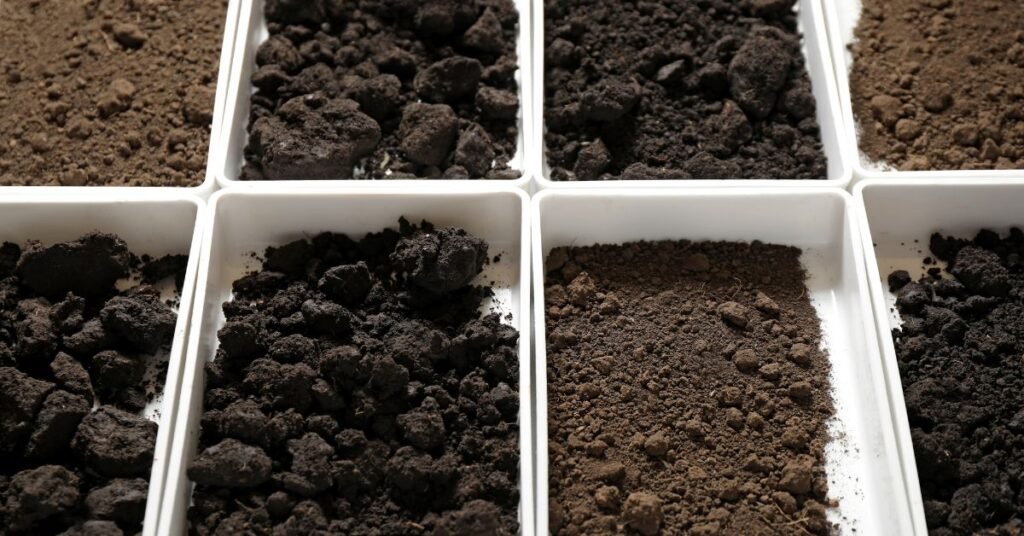
| Soil Type | Description | pH Range | Nutrient Content | Tomato Variant |
|---|---|---|---|---|
| Alluvial | Rich in minerals, well-drained, fertile | 6.0-7.5 | High in organic matter, Nitrogen | Roma, Cherry, Plum |
| Black Cotton | Heavy, clayey, moisture-retaining | 7.5-8.5 | Moderate fertility, Calcium | Cherry, Beefsteak |
| Red Sandy | Sandy texture, good drainage | 5.8-7.2 | Low in organic matter, Phosphorus | Cherry, Plum, Beefsteak |
| Laterite | Iron-rich, well-drained, acidic | 5.0-6.5 | Low in Nitrogen, High in Iron | Roma, Cherry |
| Loamy | Balanced mixture of sand, silt, and clay | 6.0-7.0 | Rich in organic matter, Balanced | Plum, Beefsteak |
| Clayey | Heavy, retains moisture, slow to drain | 6.0-7.5 | High in nutrients, Poor drainage | Beefsteak, Plum |
| Sandy | Well-draining, low fertility | 5.5-7.0 | Low in organic matter, Good drainage | Cherry, Roma |
| Mountainous | Varies based on local conditions | Varies | Varies | Cherry, Plum, Roma |
Tips for Soil Preparation:
- Test soil pH before planting.
- Add organic matter for nutrient-rich soil.
3. Planting the Tomato Seeds: Tomatoes at Home From Tomato In India
Ah, the magical moment – sowing the seeds that will soon sprout into your tomato for Tomatoes at Home From Tomato In India. Start indoors in seed trays or small pots, about 6-8 weeks before the last frost. Plant the seeds at a depth of 1/4 inch, water them gently, and watch the tiny green warriors emerge. Once they reach about 2 inches in height, it’s time for the grand transplant to your outdoor garden.
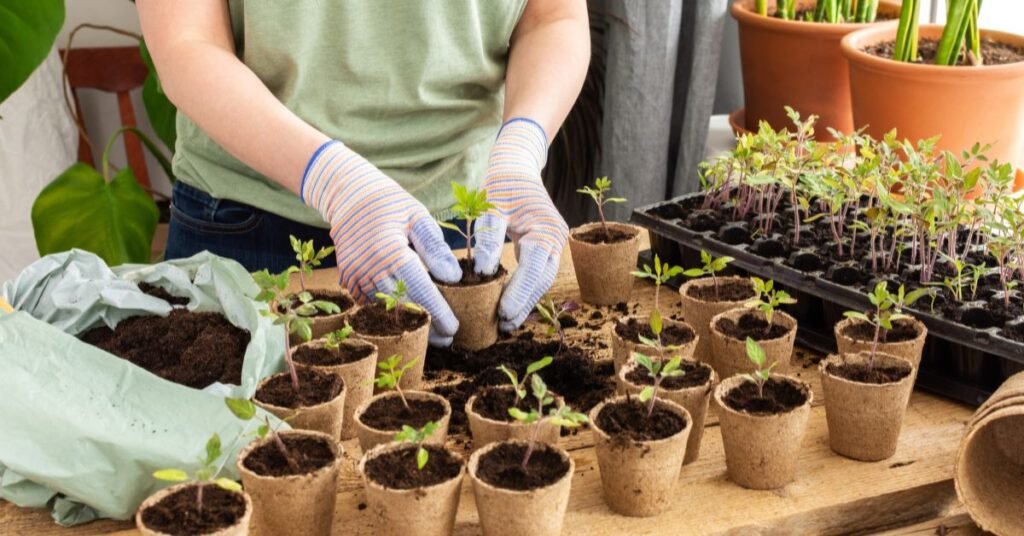
| Steps | Timing |
|---|---|
| Start Indoors | 6-8 weeks before last frost |
| Transplant to Garden | After last frost |
Tips for Planting Tomato Seeds:
- Use a seed starting mix for optimal germination.
- Keep seedlings warm for faster growth.
Read Also: How To Grow Golden Bamboo Indoor: 10 Fresh Tips to Ensure Lush Growth and Banish Plant Problems
4. Transplanting with Tender Loving Care
When the threat of frost has bid adieu, and your little tomato seedlings are robust enough, it’s transplant time. Choose a sunny spot for your tomatoes, ensuring they get at least 6-8 hours of sunlight each day. Plant them about 24-36 inches apart to allow ample room for growth. Gently tuck them into the soil, and voilà – your tomato army is ready for action.
Tips for Transplanting Tomatoes: Tomatoes at Home From Tomato in India
- Harden off seedlings before transplanting.
- Water the transplants thoroughly to reduce stress.
5. Sunlight Samba
Tomatoes are the sun-worshippers of the vegetable world. They thrive under the warm caress of sunlight. Ensure they get their daily dose, and you’ll be rewarded with plump, juicy tomatoes.

| Sunlight Requirements | Tips |
|---|---|
| 6-8 hours per day | Rotate planting locations |
| Well-drained soil | Mulch around plants |
Tips for Sunlight and Soil:
- Mulch helps retain soil moisture and regulate temperature.
- Rotate planting locations to prevent soil-borne diseases.
Read Also : Kitchen Gardening in India: Cultivating Joy
6. Water Waltz
Tomatoes enjoy a good dance with water, but don’t drown them! Keep the soil consistently moist, especially during dry spells. Avoid wetting the foliage to prevent diseases from taking root.
| Tomato Variant | Soil Type | Water Requirement |
|---|---|---|
| Roma | Alluvial | Regular watering, moderate moisture retention |
| Cherry | Black Cotton | Consistent moisture, avoid waterlogging |
| Plum | Red Sandy | Adequate watering, well-draining soil |
| Beefsteak | Loamy | Regular watering, maintain soil moisture |
| Cherry | Clayey | Controlled watering, prevent water stagnation |
| Roma | Sandy | Frequent watering, ensure good drainage |
| Plum | Laterite | Moderate watering, well-drained acidic soil |
| Cherry | Mountainous | Varied based on local conditions |
Signs of Overwatering
In the vibrant landscapes of Indian kitchen gardens, cultivating tomatoes is a popular practice. However, achieving optimal growth requires careful attention to watering. Overwatering, a common challenge, can hinder tomato plants’ health and productivity. Recognising the signs of overwatering is crucial for maintaining a thriving garden. This brief guide will highlight key indicators to help gardeners strike the right balance and ensure robust tomato plants in their Indian kitchen gardens.
| Watering Tips | Signs of Overwatering |
|---|---|
| Consistent moisture | Yellowing lower leaves |
| Avoid wetting foliage | Wilting despite moist soil |
Tips for Watering Tomatoes:
- Water at the base to prevent fungal issues.
- Use a soaker hose or drip irrigation for even moisture.
7. Supportive Symphony
Tomatoes tend to be a bit theatrical – they love a good support system. Stake or cage your tomato plants to keep them standing tall and proud. This not only prevents breakage but also makes harvesting a breeze.
| Support Types | Benefits |
|---|---|
| Stakes | Easy access for harvesting |
| Cages | Provides all-around support |
Tips for Supporting Tomatoes:
- Install supports at planting to avoid root disturbance.
- Adjust ties as the plants grow to prevent constriction.
8. Pruning Techniques
Channel your inner tomato stylist by giving your plants a little pruning pizzazz. Pinch off the suckers – those little side shoots – to encourage robust fruit development. It’s like giving your tomatoes a chic haircut for optimum growth.
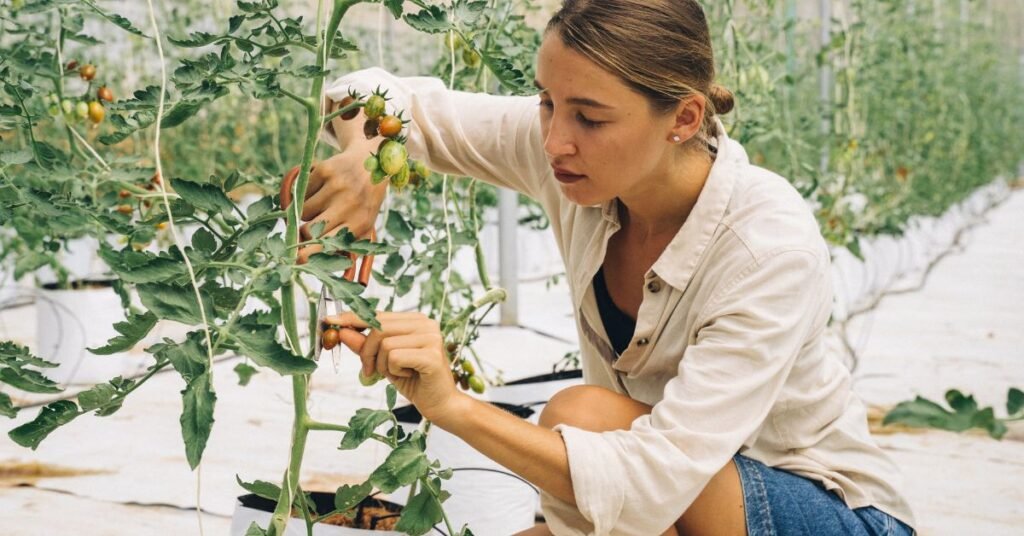
| Pruning Techniques | Benefits |
|---|---|
| Remove suckers | Redirects energy to fruit |
| Trim lower leaves | Improves air circulation |
Tips for Pruning Tomatoes:
- Prune in the morning to allow wounds to heal during the day.
- Sterilize pruning tools between plants to prevent disease spread.
9. Pesky Pests Management
Dancing with pests is inevitable, but we have a few moves up our sleeves. Neem oil spray or a concoction of garlic and pepper can be your organic allies in repelling unwanted guests. Keep an eye out for signs of trouble and nip it in the bud – quite literally.
| Common Pests | Natural Remedies |
|---|---|
| Aphids | Neem oil spray |
| Tomato Hornworms | Handpick and release beneficial insects |
Tips for Pest Management:
- Attract natural predators like ladybugs and parasitic wasps.
- Companion planting with marigolds and basil can deter pests.
10. Weather Waltz Woes
Indian weather can be a bit unpredictable, but fear not! Protect your tomatoes during unexpected weather tantrums with covers or cloths. Be it a hailstorm or a sudden downpour, your tomatoes will appreciate the shelter.
Tips for Weather Protection:
- Use row covers or cloths during extreme weather events.
- Water plants well before anticipated hot or dry spells.
11. Harvesting Happiness: When to Pick Your Tomatoes
The time has come – your tomatoes are gleaming with ripeness, and your heart is pounding with excitement. But hold your horses; timing is key. Wait until the tomatoes are fully coloured and slightly firm to the touch. A gentle twist, and they should come off effortlessly. Remember, patience is a virtue, especially in the world of tomatoes.
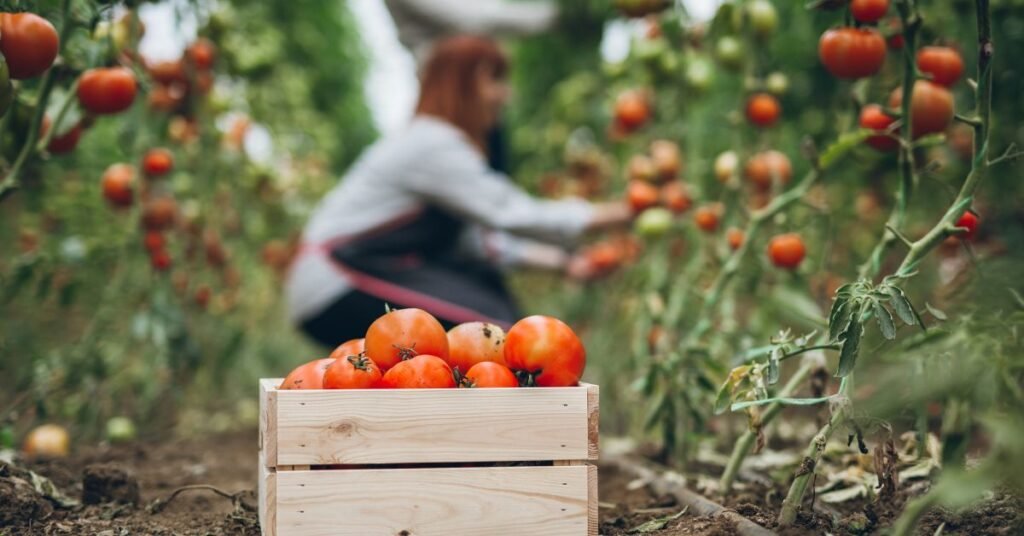
Tips for Harvesting Tomatoes:
- Harvest in the morning for the best flavor.
- Use sharp scissors or pruning shears to avoid damaging the plant.
Celebrating the Tomato Fiesta
Now that you’ve successfully grown tomatoes at Home From Tomato In India, it’s time for a grand fiesta! Gather your friends and family for a tomato-themed feast. From luscious salads to tangy sauces, let your homegrown tomatoes steal the show. Share the joy of your gardening triumph and bask in the flavourful glory of your very own tomatoes.
Tomato Recipe Ideas:
- Caprese Salad: Fresh tomatoes, mozzarella, and basil drizzled with balsamic glaze.
- Homemade Pasta Sauce: Create a rich and savory sauce using your sun-ripened tomatoes.
- Tomato Chutney: A spicy and tangy condiment that pairs well with Indian dishes.
Frequently Asked Questions on Tomatoes at Home From Tomato In India
How do you grow tomatoes from tomatoes at home?
To grow tomatoes at home, you can follow these steps:
a. Select a ripe and healthy tomato.
b. Slice the tomato into thin sections.
c. Place the slices on a well-draining potting mix or directly in the garden soil.
d. Cover the slices with a thin layer of soil.
e. Water regularly and ensure the soil remains consistently moist.
f. Once the seedlings appear, transplant them to larger containers or directly into the garden.
Where did tomatoes come from in India?
Tomatoes are believed to have originated in western South America and were introduced to India by the Portuguese during the 16th century.
In which month tomato is grown in India?
Tomatoes are grown in India throughout the year, but the main cultivation periods are during the winter and summer months. In northern India, it is typically grown from October to March, while in southern regions, it can be cultivated from November to April.
Which soil is best for tomato plants?
Tomatoes prefer well-draining, loamy soil with a slightly acidic to neutral pH. Adding organic matter like compost can enhance soil fertility and water retention.
How long do tomatoes take to grow from?
Tomatoes typically take around 50 to 85 days from planting to harvesting, depending on the variety. Cherry tomatoes may mature faster than larger varieties.
Do tomatoes grow naturally in India?
Tomatoes were introduced to India, and while they don’t grow wild, they are cultivated widely across the country.
Which state is famous for tomato in India?
Karnataka, Andhra Pradesh, Maharashtra, and Haryana are some of the states in India known for significant tomato cultivation.
Why is tomato expensive in India?
Factors such as seasonal variations, transportation costs, and supply chain issues can contribute to the fluctuating prices of tomatoes in India.
Can you grow a tomato plant from a slice of tomato?
Yes, it is possible to grow a tomato plant from a slice of tomato by following the steps mentioned in the first answer.
How do you get seeds from tomatoes?
To collect tomato seeds, squeeze them out from the ripe fruit, rinse them to remove the gelatinous coating, and then dry them thoroughly before storing.
Can tomatoes grow from cuttings?
While tomatoes are typically grown from seeds, it is possible to propagate certain varieties from cuttings, although this method is less common.
Which part of the tomato plant has tomato seeds?
The seeds are located in the central part of the tomato, surrounded by the gel-like substance. They can be extracted by slicing the tomato and scooping out the seeds.
Conclusion: Tomatoes at Home From Tomato In India
Growing tomatoes at home in India is not just a gardening venture; it’s a journey filled with excitement, challenges, and ultimately, delicious rewards. With the right variety, soil, and a sprinkle of love, you can transform your backyard into a tomato haven. So, roll up your sleeves, grab your gardening gloves, and embark on this tomato-growing adventure – because the joy of plucking a ripe tomato from your garden is unparalleled.
In your journey to tomatoes at Home From Tomato In India, remember the tips and tricks shared here. Let the sunlight, water, and support guide your tomatoes to their full potential. Don’t be afraid to prune and protect them from pests and diseases with a dance of natural remedies. Celebrate the harvest with a flavorful feast, and share the love of homegrown tomatoes with your community.
Happy gardening, and may your tomato plants flourish, bringing a burst of color and flavor to your home and kitchen!
